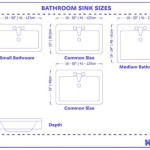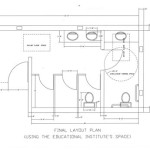How Much Does a Permit Cost to Add a Bathroom?
Adding a bathroom to a home is a significant undertaking that can substantially increase property value and improve functionality. However, before commencing any construction, obtaining the necessary permits is crucial. The cost of these permits can vary widely depending on several factors. Understanding these factors is essential for budgeting accurately and ensuring that the project complies with local regulations.
The fundamental purpose of a building permit is to ensure that construction projects adhere to established safety codes and standards. These codes are designed to protect the occupants of the building and the public at large. Permits allow local authorities to review the proposed plans, inspect the construction progress, and verify that the work is being performed correctly. Bypassing the permit process can lead to significant fines, legal issues, and potential problems with selling the property in the future.
The cost of a permit to add a bathroom is not a fixed figure. Instead, it is calculated based on a variety of elements that reflect the scope of the project, the location of the property, and the administrative fees levied by the local permitting authority. This article will explore the diverse factors influencing the cost of bathroom addition permits, providing a comprehensive guide to help homeowners navigate this essential aspect of home improvement.
Factors Influencing Permit Costs
Several key factors play a role in determining the overall cost of a permit for adding a bathroom. These factors are often intertwined and can significantly impact the final expense. Understanding each element helps homeowners anticipate the potential permit costs and plan their budget accordingly.
Project Scope and Complexity: The size and complexity of the bathroom addition directly influence the permit cost. A simple installation involving minimal plumbing and electrical work will typically incur lower fees than a more extensive project requiring significant structural modifications. The addition of new walls, changes to existing load-bearing structures, and the installation of complex plumbing systems, such as a macerating toilet system, will all increase the project's complexity and, consequently, the permit costs.
Furthermore, the location of the new bathroom can also affect the cost. Adding a bathroom in an easily accessible space, like an adjacent room, will generally be less expensive than adding one in a difficult location, such as a basement or attic. These locations may require specialized plumbing solutions, additional structural support, and more extensive electrical work, thus increasing both the construction cost and the permit fees.
Location and Jurisdiction: Permit fees are highly localized, meaning that the city, county, or even specific neighborhood in which the property is located significantly impacts the amount charged. Different jurisdictions have varying building codes, permitting processes, and fee structures. Areas with more stringent building codes or higher administrative costs tend to have higher permit fees. It is crucial to research the specific regulations and fee schedules for the relevant local permitting authority. Consulting with a local contractor who is familiar with the permitting process in the area can also provide valuable insights into the expected costs.
Some jurisdictions may also have additional fees related to specific environmental concerns or infrastructure improvements. For instance, if the bathroom addition requires connecting to the city's sewer system, there might be impact fees or connection charges. These fees contribute to the overall permit cost and must be factored into the budget.
Valuation of the Project: Many jurisdictions base permit fees on the estimated valuation of the entire construction project. This valuation includes the cost of materials, labor, and any associated expenses related to the bathroom addition. The higher the estimated cost of the project, the higher the permit fees will be. For example, a luxurious bathroom addition with high-end fixtures and finishes will have a higher valuation than a basic bathroom addition with standard materials, leading to a corresponding increase in permit expenses. It's important to obtain accurate quotes from contractors and suppliers to arrive at a realistic valuation for the project.
To determine the valuation, some jurisdictions may require a detailed breakdown of the project costs, including itemized lists of materials and labor. They may also use standardized cost estimation tables to assess the project's value. Homeowners should be prepared to provide this information to the permitting authority and ensure that the estimate is as accurate as possible to avoid any discrepancies or delays in the permit process.
Types of Permits Required for Bathroom Additions
Adding a bathroom typically involves multiple aspects of construction, each potentially requiring separate permits. Understanding the different types of permits needed is crucial for ensuring compliance and avoiding legal issues. While the specific permits required may vary by location, several common permits are usually necessary for bathroom additions.
Building Permit: The most common and comprehensive permit is the building permit. This permit covers the structural aspects of the project, including the construction of new walls, changes to existing walls, and any structural modifications required for the bathroom addition. It ensures that the structural integrity of the building is maintained and that the construction complies with local building codes. The building permit application usually requires detailed architectural plans, including floor plans, elevations, and structural details.
Plumbing Permit: Plumbing permits are essential for any project involving the installation or modification of water supply lines, drain lines, and sewer connections. Adding a bathroom invariably involves plumbing work, including installing new toilets, sinks, showers, and bathtubs. The plumbing permit ensures that the plumbing system is installed correctly and meets the requirements of the plumbing code. The application typically requires detailed plumbing plans showing the layout of the pipes, fixtures, and drainage systems. An inspection is usually conducted to verify that the plumbing work is performed according to the approved plans.
Electrical Permit: Electrical permits are required for any electrical work associated with the bathroom addition, including the installation of new wiring, outlets, lighting fixtures, and exhaust fans. The electrical permit ensures that the electrical system is safe and complies with electrical codes. This is particularly important in bathrooms, where moisture and electricity can pose a significant hazard. The application usually requires electrical plans showing the location of the wiring, outlets, and fixtures. A qualified electrician should perform the electrical work and obtain the necessary permits.
Mechanical Permit: A mechanical permit may be required if the bathroom addition involves changes to the heating, ventilation, and air conditioning (HVAC) system. This could include installing a new exhaust fan, rerouting ductwork, or adding a supplemental heating unit. The mechanical permit ensures that the HVAC system is installed correctly and meets the requirements of the mechanical code. It is especially important to ensure proper ventilation in a bathroom to prevent moisture buildup and mold growth. The application usually requires mechanical plans showing the layout of the ductwork and equipment.
Demolition Permit: In some cases, a demolition permit may be required if the project involves demolishing existing walls or structures to make way for the new bathroom. This is particularly relevant if the project involves gutting an existing room or making significant structural changes. The demolition permit ensures that the demolition work is performed safely and in compliance with local regulations. It may also require measures to control dust and debris during the demolition process.
Estimating and Obtaining Permit Costs
Accurately estimating the cost of permits and navigating the application process are essential steps in planning a bathroom addition. While it can be a complex process, there are several strategies that homeowners can employ to obtain reliable cost estimates and streamline the permit application.
Contact the Local Permitting Authority: The most reliable way to estimate permit costs is to directly contact the local permitting authority, such as the city or county building department. Most permitting authorities have websites that provide information on permit requirements, fee schedules, and application procedures. Some may even offer online calculators to estimate permit costs based on the project's scope and valuation. Contacting the permitting authority directly allows homeowners to obtain accurate and up-to-date information specific to their location and project.
When contacting the permitting authority, be prepared to provide details about the project, including the square footage of the bathroom addition, the type of work involved (plumbing, electrical, structural), and the estimated valuation of the project. The permitting authority can then provide an estimate of the various permit fees that will be required. It is also a good idea to inquire about any additional fees or charges that may apply, such as impact fees or inspection fees.
Consult with a Licensed Contractor: Hiring a licensed contractor who is experienced in bathroom additions can be invaluable in estimating permit costs and navigating the permitting process. Contractors often have established relationships with local permitting authorities and are familiar with the specific requirements and procedures in the area. They can help homeowners accurately estimate the project's valuation, identify the necessary permits, and prepare the required documentation.
A contractor can also assist with the permit application process, acting as an agent on behalf of the homeowner. This can save homeowners a significant amount of time and effort, especially if they are unfamiliar with the permitting requirements. Furthermore, a contractor can ensure that the project complies with all applicable building codes, reducing the risk of delays or rejections during the inspection process.
Review Online Resources and Forums: Numerous online resources and forums provide information and advice on home improvement projects, including bathroom additions. These resources can offer insights into the experiences of other homeowners who have undertaken similar projects in the area. However, it is important to verify the accuracy of the information obtained from online sources, as building codes and permitting requirements can vary significantly by location. Using online resources as a starting point for research and then confirming the information with the local permitting authority is advisable.
Some online forums may also include discussions about permit costs and application procedures. While these discussions can be helpful in understanding the general range of costs, remember that actual permit fees can vary depending on the specific project and location. Treat online information as a supplement to, not a replacement for, contacting the local permitting authority.
While specific dollar figures aren't provided, understanding these factors and taking proactive steps can help homeowners navigate the permitting process successfully and budget appropriately for their bathroom addition project. Always prioritize compliance and seek professional guidance to ensure that the project is completed safely and legally.

Building Permit Cost Complete List Of Average S Getasiteplan

Cost To Add A Bathroom 2024 Guide Forbes Home

How Much Does It Cost To Add A Bathroom 2024 Data

Fixr Com Building Permit Cost To Get A

Fixr Com Building Permit Cost To Get A

How Much Does It Cost To Add A Bathroom 2024 Data

Do You Need Permits To Remodel A Bathroom Sweeten Com

Fixr Com Building Permit Cost To Get A

Cost To Add A Basement Bathroom Bright Green Door

How Much Does A Walk In Shower Cost 2024 Forbes Home
Related Posts







